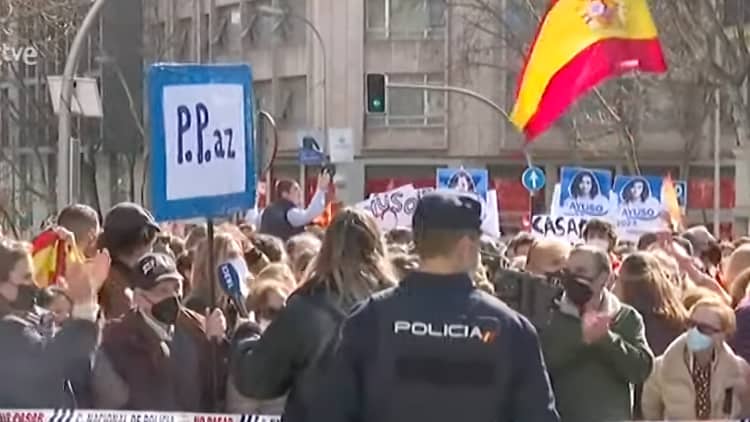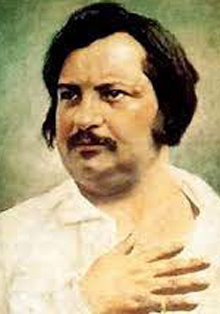Ángel Collado
The open civil war in the PP not only temporarily suspends the party as a reference point for the centre right and an alternative government, but also threatens the institutional stability of the nation.
A weak socialist Executive, without a stable parliamentary majority, mortgaged in every project or vote with its extreme left-wing or separatist partners, now faces an opposition mired in internal quarrels. A president questioned inside and outside his organisation, Pablo Casado, is fighting from the leadership to end the political career of the leader of his own party with the most power (the Community of Madrid) and projection: Isabel Díaz Ayuso.
The live suicide of the PP is an unprecedented spectacle in Spanish democracy that removes Pedro Sánchez from any concern about the threat of a changeover in the Executive despite its wear and tear. It even strengthens his plans to remain at the head of the government, as the crisis of the PP encourages the rise of the extreme right, Vox, the pillar of Sanchez’s argument to present himself in all kinds of elections as a brake on that same extreme right.
The party headed by Santiago Abascal, which in the 2019 general elections received 15 per cent of the votes, has risen to 17 per cent in the regional elections in Castilla y León. If it continues its rise at the expense of the crisis of the Popular Party, Vox could split the right in two and thus guarantee the PSOE its continuity as the leading political force in the next elections.
The self-destructive drift of the Popular Party, due to struggles for power and egos rather than projects or ideological tendencies, threatens to bring to Spain the models already tried in France and Italy with the disappearance of the large parties that for decades brought together the centre-right of liberal or Christian Democrat origin.
For the moment, the PP has entered a crisis of survival five months before its national congress, scheduled for July, which was already looking complicated for the current leadership. Only arriving at this event with the prospect of being in a position to win the next elections gave Pablo Casado the security of a comfortable re-election. To achieve this, he needed a clear victory for the party in the regional elections in Castilla y León in February, which he planned to claim as a personal success, and to repeat a similar operation before the summer in Andalusia.
In the first round, the Popular Party won by the skin of its teeth and is now in the hands of Vox. Moreover, given the panorama, the president of the Junta de Andalucía, Juan Manuel Moreno, has decided to leave the date with the polls in the region over which he presides until the end of the year. Casado was left with no more assets for the great national assembly in July than to deal with Ayuso’s demand to hold his own congress in Madrid in order to win the regional presidency of the organisation. At that point, the internal and public war was unleashed that could halt the career of the ‘lideresa’ and leave the future of Casado and his team up in the air.
The so-called ‘barons’, those with weight, such as Alberto Núñez Feijóo and Juan Manuel Moreno, are appalled by the leadership’s campaign against their colleague Díaz Ayuso. The president of the Xunta de Galicia is calling on his own behalf and in line with the opinion of all the party’s old guard (what remains of the Mariánista era) for the immediate resignation or dismissal of the secretary general and Casado’s right-hand man, Teodoro García Egea, for his disastrous management of the crisis. It is also the first requirement for questioning the party’s top leader and proposing an immediate advance of the national congress to give way to a new leadership.
If Casado continues to fail to channel the crisis and insists on keeping Egea, Feijóo is once again the one to be nominated to take over the presidency at the next congress. Although he did not want to participate in the congress on Rajoy’s succession in 2018, this time he will not be able to argue that they do not leave him time to organise himself.
The presidentialism and discipline that have characterised the PP since its re-founding in 1990 had so far prevented party leaders and cadres from publicly questioning the authority of its president. Criticisms stopped at the ways and procedures of the secretary general, as if they were alien to the orders of their boss.
The fight against Ayuso makes it clear that Casado is ultimately responsible for the internal operation to end the career of the president of the Community of Madrid and García Egea, its clumsy executor.
Last May 4, Ayuso achieved in the region she governs the objective that the Partido Popular has pending in Spain as a whole: to reunify the centre-right vote until Vox is left in institutional marginality and can sweep away socialists and communists. Casado’s team has taken the opposite path, Abascal now dreams of replacing the PP and Sánchez of taking advantage and stirring up the scarecrow that the extreme right is coming in order to perpetuate himself in power.







